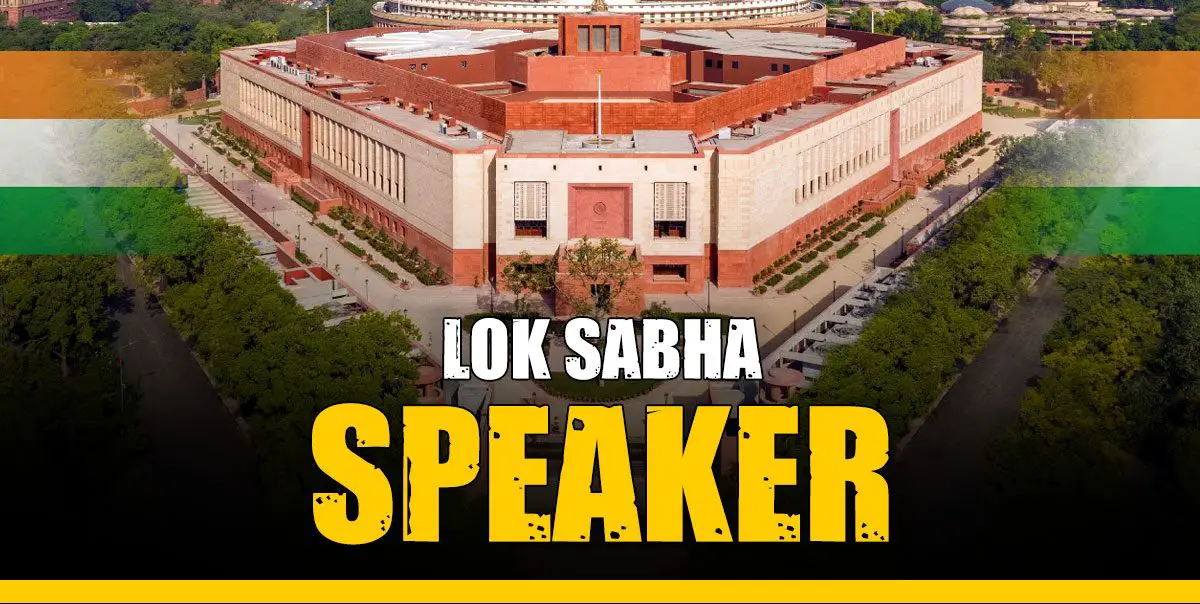
In a significant political development, negotiations over the post of Lok Sabha Speaker are set to resume today. The meeting, scheduled for 5 pm, will be held at Defense Minister Rajnath Singh’s residence in Delhi, involving union ministers and allies of the ruling Bharatiya Janata Party (BJP). This high-stakes discussion is crucial as the BJP and its allies work to nominate a suitable candidate for the Speaker position, a role pivotal in controlling House protocols and proceedings.
Also read:
The BJP’s Position and Allies’ Role
The BJP, although the single largest party in Parliament with 240 seats, falls short of a majority by 32 seats. Consequently, the party relies heavily on the support of its allies, particularly Nitish Kumar’s Janata Dal (United) or JDU and Chandrababu Naidu’s Telugu Desam Party (TDP), to maintain power. This reliance necessitates a more flexible approach in negotiations compared to previous years when the BJP enjoyed a brute majority after the 2014 and 2019 elections.
Potential Candidates and Strategic Considerations
Sources indicate that the BJP is considering key leaders from Andhra Pradesh and Odisha for the Speaker role as a gesture of appreciation to the voters in these states. Among the top contenders are D Purandeshwari, the head of the BJP’s Andhra Pradesh unit, and Bhatruhari Mahtab, a former member of the Biju Janata Dal (BJD) from Odisha. Both states saw significant victories for the BJP-led National Democratic Alliance (NDA) in the recent elections.
D Purandeshwari, who is also the sister-in-law of TDP leader Chandrababu Naidu, emerges as a potential compromise candidate between the BJP and TDP. Her selection could appease the TDP, given her familial ties and her instrumental role in the party’s successes in Andhra Pradesh. Another possibility is the return of the current Speaker, Om Birla, who has served in the role since 2019.
Suggested reading:
Did Jagan Reddy Build Lavish Palace on Rushikonda Hill? TDP’s New Allegations
The Opposition’s Maneuvering
In contrast, the Congress party has named K Suresh from Kerala’s Mavelikara as the interim, or Pro Tem, Speaker. K Suresh, being the longest-serving MP in this House, will administer the oath to the new members and adjourn the House until a permanent Speaker is appointed. The Congress and other opposition parties are keenly observing the developments, recognizing the strategic importance of the Speaker’s role in the functioning of the Lok Sabha.
Importance of the Speaker’s Role
The position of the Lok Sabha Speaker holds significant authority, particularly in matters related to the disqualification of MPs on grounds of defection. This power is especially relevant in a coalition government, where stability can be fragile. Therefore, both the TDP and JDU have shown interest in the post, hoping to leverage this authority in potential political scenarios.
suggested reading:
Coalition Dynamics and Rewards
The return of coalition politics after a decade of majority governance has led to intricate negotiations over rewards and positions for BJP allies. The distribution of ministerial berths was completed last week, aiming to satisfy most, if not all, coalition partners. However, the selection of the Lok Sabha Speaker remains a contentious issue, with each party seeking a share of power and influence.
Deputy Speaker’s Position
Adding to the complexity is the vacancy of the Deputy Speaker’s position, which has been unfilled since 2019. Traditionally, this role is held by a member of the opposition, but this is not a requirement. In 2014, the BJP appointed AIADMK’s M Thambidurai as the Deputy Speaker. This time, the BJP might use this position as a bargaining chip to placate allies vying for the Speaker’s role.
Opposition’s Strategy
The opposition, which now presents a more united front with multiple parties rallying behind the Congress, is also eyeing the Deputy Speaker’s position. With 232 seats won by the opposition coalition, they are in a stronger position to negotiate and counterbalance the BJP’s influence in the Lok Sabha. This added pressure on the BJP from a robust opposition could shape the final decision on both the Speaker and Deputy Speaker positions.
Conclusion
As the meeting unfolds at Rajnath Singh’s residence, the political landscape in India awaits the outcome of these crucial negotiations. The decision on the Lok Sabha Speaker will not only reflect the power dynamics within the ruling coalition but also set the tone for legislative proceedings in the upcoming term. With key leaders from Andhra Pradesh and Odisha in contention, and the strategic interests of allies like the TDP and JDU at play, the selection process underscores the intricate nature of coalition politics in India.
